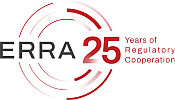Scaling Up to Phase Down: Financing Energy Transition in Developing Countries
Energy transition in developing countries will require an unprecedented transformation of the power sector infrastructure, with scaling up of energy efficiency and renewable energy as well as a phasing down of coal-fired power generation. The new framework for this energy transition proposed by the World Bank, titled “Scaling Up to Phase Down”, serves as a roadmap to identify financing challenges and develop a comprehensive financing approach.
“Scaling Up to Phase Down” sets out the challenges facing developing countries seeking to transition their power sectors, in order to identify pathways to address these issues. Three key barriers prevent developing countries from accelerating their energy transition. First, renewable energy projects entail prohibitively high upfront capital costs, and many countries lock themselves into costly and high carbon energy choices with inefficient energy subsidies. Second, developing countries face a high cost of capital that distorts their investment choices away from renewables. And third, weak energy sector fundamentals—especially institutional capacities—hinder the scaling of the transition.
The framework distils the energy transition into a “virtuous cycle” of six steps that are foundational for overcoming barriers to renewable energy. The cycle starts with government leadership, which is translated to a supportive regulatory environment, increasingly capable institutions, and instruments to minimize risks, followed by transparent and competitive project allocation, which can deliver renewable energy that serves urgent needs, including energy security, energy affordability, and jobs.

